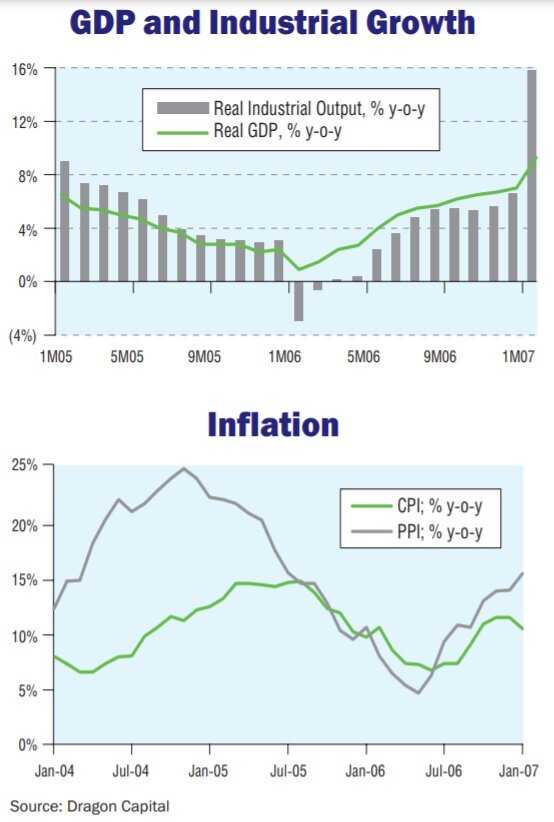The negative expectations expressed in the survey mirror recent studies gauging consumer confidence.
A recently published survey indicates that a growing number of Ukrainians are feeling the pinch of escalating political instability and rising tariffs on electricity, gas and heating utility services.
State figures show that Ukraine posted strong GDP growth of about 7 percent last year thanks to solid steel exports and rising domestic consumption. Meanwhile, the population’s rising purchasing power has been fueling much of the country’s domestic consumption growth.
Nevertheless, a survey conducted weeks ago by the Kyiv International Institute of Sociology indicates that the majority of Ukraine’s citizens don’t see their future as very bright.
The survey, released by KIIS last week, shows that a whopping 60 percent of Ukraine’s adult population is expecting an economic collapse within the coming year. The study, which surveyed 2,039 Ukrainians between Feb. 24 and 28, indicates that 25 percent more Ukrainians are expecting an economic collapse this year as compared with last December.

The percentage of Ukrainians who fear the country is close to breaking apart due to so-called Ea
st-West tensions, or rival support for Ukraine’s pro-Western and
pro-Russian electoral bases separated geographically down the middle of the count
ry, also rose one-and-a-half times, to 31 percent.
In the country’s central regions, 30 percent of respondents were afraid of having all of the country’s political power concentrated into one set of hands.
The negative expectations expressed in the survey mirror recent studies gauging consumer confidence.
Reflecting Ukraine’s shaky economy and political situation, consumer confidence has continued to decrease, according to a quarterly Consumer Confidence Index report published last December by Kyiv-based think tank International Centre for Policy Studies.
Studies produced by the center have shown that consumer confidence has gradually increased since 2000, but fell around last year’s parliamentary elections, and has been shaky and on a downturn ever since.
The studies indicate that the average Ukrainian does not feel the benefits of strong economic growth posted last year, largely because their purchasing power, though stronger, has been kept in check due to rising utility tariffs.
The governing coalition of Prime Minister Viktor Yanukovych has boasted success in handling the nation’s economy, pointing to GDP growth figures indicating that growth has surged from earlier lows since the coalition’s government took office late last summer.
But earlier this month, President Viktor Yushchenko criticized the government for taking credit for the rebound in GDP growth.
He said the government was “digging into statistics, which do not belong” to them, but are rather a product of the predecessor government run by a presidential ally.
Yushchenko also stressed the need to increase living standards in the country, saying that the population does not always feel the benefits of high GDP growth rates.
